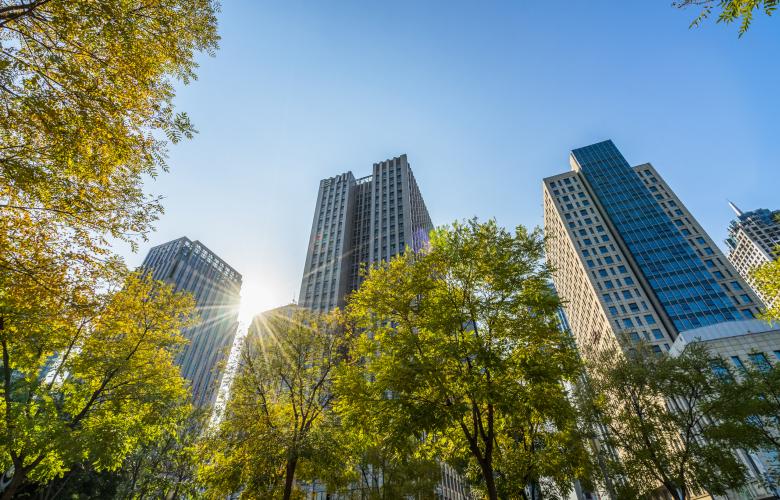Hotels go green – improve sustainability by claiming depreciation deductions - BMT
Contact
Hotels go green – improve sustainability by claiming depreciation deductions - BMT
BMT Tax Depreciation discuss how hoteliers can introduce sustainable practices, improve their environmental impact, and how claiming depreciation deductions can recoup costs.
The demand for sustainable accommodation is growing. According to Booking.com’s 2022 Sustainable Travel report, 81 per cent of global travellers confirmed that sustainable travel is important to them, with another 57 per cent stating that they would feel better staying in accommodation with a sustainable certification.
In this article, BMT Tax Depreciation discuss how hoteliers can introduce sustainable practices, improve their environmental impact, and how claiming depreciation deductions can recoup costs.
Improve energy efficiency and use renewable energy sources
Hoteliers can improve energy efficiency by installing smart technology such as sensory lighting, metering upgrades, demand-controlled ventilation, occupancy sensors and integrated heat recovery systems.
Installing solar panels on rooftops or in parking lots can generate clean energy with low disruption to the hotel and reduce the use of fossil fuels.
Conserve water
Water conservation is an important factor in sustainability and preserving the environment.
Only running dishwashers and washing machines with full loads, installing showerheads, faucets, and toilets with built-in flow limiters and recycling greywater and rainwater for landscaping and other non-potable uses are sustainable and cost-effective options. Hoteliers can also encourage guests to participate in water conservation by offering incentives for reusing towels and linens.
Reduce food and other waste
Hoteliers can reduce their waste by eliminating single-use materials, avoiding unnecessary use of paper, purchasing eco-friendly supplies, start composting and donating extra food to local charities or education establishments.
Donating used equipment and furniture to charities and reusing materials will further reduce waste and benefit the local community.
Eliminate single-use items
Eliminating straws and other disposable cups and cutlery within guest rooms and in hotel restaurants and cafés will reduce ongoing costs and single-use materials in landfill and the environment. In scenarios where crockery isn’t practical, such as when taking away, there are eco-friendly and biodegradable options available.
Replacing plastic keycards with smart locks, access codes and keyless entry systems will not only reduce single-use plastics but can also reduce the transmission of germs and improve security and convenience.
Use eco-friendly products
Most cleaning products contain harmful chemicals which can be damaging to human health and the environment. Switching to eco-friendly products that are biodegradable and non-toxic can protect the environment and provide a healthier environment for guests and employees.
Offering eco-friendly features like refillable water bottles, toiletries in refillable containers and recycling bins in guest rooms can reduce single-use plastic and encourage guests to adopt sustainable practices.
Adopt sustainable practices in building design
At the construction stage, hoteliers can incorporate sustainable building design by using green building materials, designing for natural light and ventilation, and installing energy-efficient windows and insulation. These practices can reduce energy consumption, improve indoor air quality, and provide a comfortable and sustainable environment for guests and employees.
By adopting sustainable practices, hotels can reduce their environmental footprint, appeal to eco-conscious guests, and save money on energy and water bills. These practices not only benefit the hotel but also contribute to a healthier and more sustainable planet.
Apply government incentives
Until 30 June 2023 temporary full expensing, the backing business incentive and the instant asset write-off incentive are available for eligible businesses. Under temporary full expensing, eligible businesses can claim an immediate deduction for the business portion of the cost of an asset in the year it is first used or installed ready to use for a taxable purpose. Hoteliers may find temporary full expensing as an opportune time to upgrade and install sustainable assets and recoup the costs in the same financial year.
The instant asset write-off has been temporarily extended, which allows businesses with an aggregated turnover of less than $10 million can immediately deduct the full cost of qualifying assets costing less than $20,000 that are first used or installed ready for use between 1 July 2023 and 30 June 2024. This is on a per-asset basis, meaning multiple assets can be written off as long as they qualify.
After 30 June, the newly introduced small business energy incentive will be available which supports small and medium businesses to save on energy bills by incentivizing the electrification of assets and improvements to energy efficiency. Under this incentive, businesses with an aggregated turnover of less than $50 million will be able to deduct an additional twenty per cent of the cost of eligible depreciating assets that support electrification and more efficient use of energy.
It’s important to mention that hoteliers should speak with their accountant or financial advisor before applying incentives as they may not be suitable for all businesses.
Recoup costs with depreciation deductions
The good news is that hoteliers wanting to make sustainability-related upgrades, or upgrades in general can claim depreciation deductions to recoup the costs.
Capital works deductions (Division 43) are claimable on the building’s structure and assets permanently fixed to the property. Plant and equipment depreciation (Division 40) is claimable on easily removable or mechanical assets.
Most of the sustainable assets mentioned above fall under Division 40 and are eligible to be depreciated over the asset’s effective life or immediately written off, depending on the cost of the asset.
Claiming depreciation is essential in boosting cash flow and reducing potential taxation liabilities.
To claim maximised deductions in a hotel, it’s important to engage a specialist quantity surveyor such as BMT Tax Depreciation for a tax depreciation schedule.
To learn more about how hoteliers can recoup the costs of sustainable upgrades with depreciation deductions they should contact BMT on 1300 728 726 or Request a Quote.
The information in this article is general in nature and shouldn’t be taken as a quote or a guaranteed outcome.








